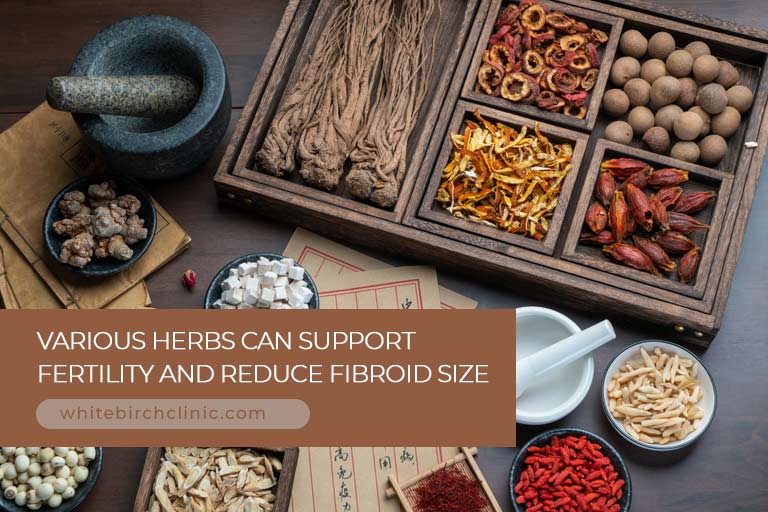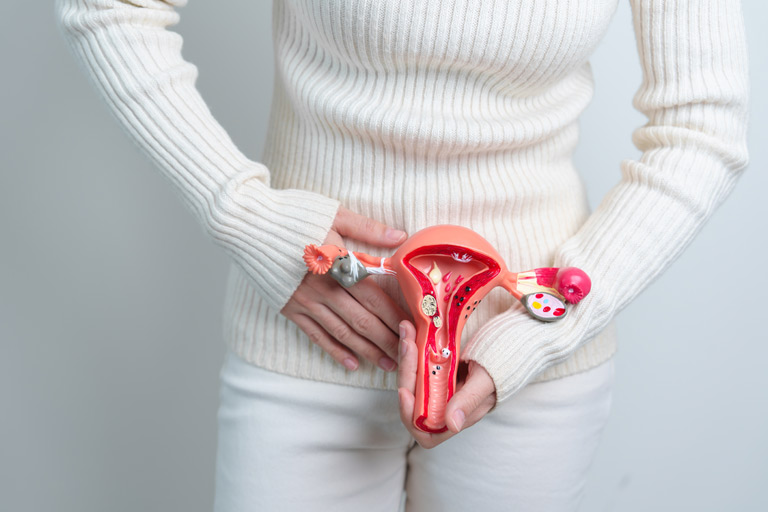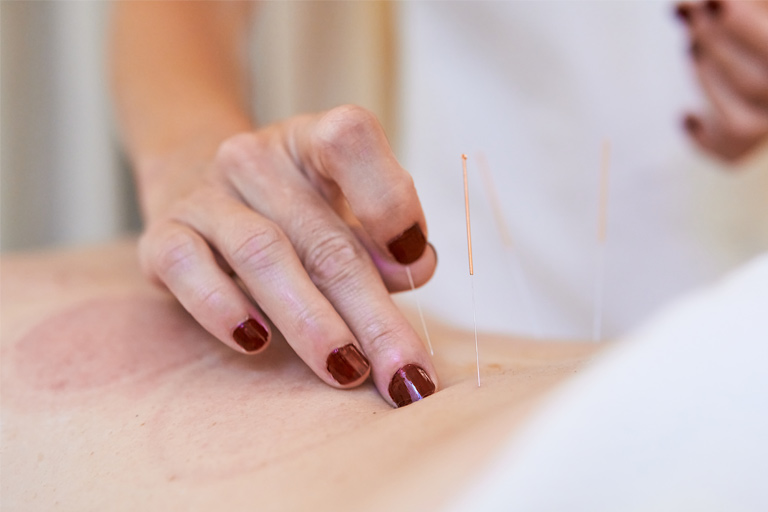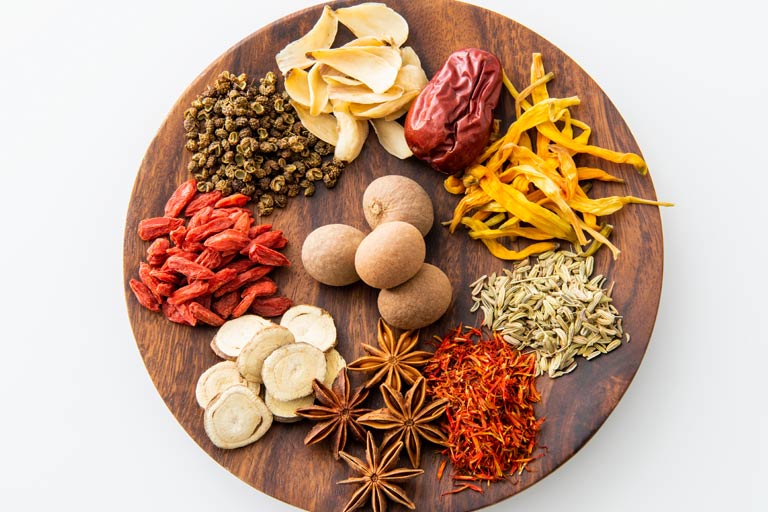Fibroids and Fertility: Can Herbs Boost Your Chances of Conception?
Fibroids, non-cancerous growths in the uterus, can pose a challenge to fertility by altering the uterine environment or impeding implantation. Traditional Chinese Medicine (TCM), with its holistic approach to health, offers an alternative avenue for women seeking to enhance their fertility while managing fibroids. Can TCM herbs truly unlock the potential for conception in women with fibroids?
TCM, a centuries-old practice, emphasizes the delicate balance of the body’s energies and aims to address the root cause of ailments, not just the symptoms. It views health as an interconnected web, where each element plays a crucial role in overall well-being. This approach makes TCM a compelling option for women looking for natural and holistic ways to improve their fertility.
What Are Fibroids and How Do They Affect Fertility?
Fibroids, or leiomyomas, are benign tumours that develop in the muscular wall of the uterus. They vary in size, number, and location, often classified as intramural (within the uterine wall), subserosal (projecting outward from the uterus), or submucosal (protruding into the uterine cavity).
The impact of fibroids on fertility depends on their size, location, and number. Submucosal fibroids, for example, can distort the uterine cavity, hindering implantation or increasing the risk of miscarriage. Fibroids can also impact blood flow to the uterus, affecting embryo development.
Conventional treatments for fibroids, such as myomectomy (surgical removal) or uterine artery embolization (blocking blood flow to fibroids), can also affect fertility, either positively or negatively, depending on the procedure and the individual’s situation.
TCM Perspective on Fibroids and Fertility
In TCM, fibroids are often associated with “Blood Stasis,” a condition where blood flow is sluggish or obstructed. This stagnation can lead to the accumulation of Qi and Blood, eventually forming fibroids. Other factors, such as emotional stress, diet, and lifestyle, can also contribute to their development.
TCM views fertility as the culmination of balanced Qi, Blood, Yin, and Yang. Treatment focuses on restoring harmony, improving circulation, and nourishing the reproductive organs. Herbs play a vital role in this process, acting as catalysts for change and providing targeted support to specific organs and systems.
TCM Herbs for Fibroids and Fertility

TCM herbal therapy utilizes a vast array of plant-based ingredients, each with unique properties and functions. These herbs are carefully selected and combined into personalized formulas based on individual diagnosis and needs.
Some commonly used formulas and herbs for fibroids and fertility support include:
- Gui Zhi Fu Ling Wan (Cinnamon Twig and Poria Pill): This formula is often prescribed to promote blood circulation and break up blood stasis, which can contribute to fibroid formation. By improving circulation, it may help shrink fibroids and improve uterine health.
- Dang Gui (Angelica Sinensis): Known for its blood-nourishing properties, Dang Gui helps regulate the menstrual cycle and reduce blood stasis. It is commonly used in TCM to support reproductive health by enhancing blood flow to the uterus.
- Xiang Fu (Cyperus): Often used to regulate Qi and relieve stagnation, Xiang Fu can be beneficial for managing menstrual irregularities associated with fibroids. It helps reduce symptoms such as pain and bloating.
- Chuan Xiong (Szechuan Lovage Root): This herb is used to promote blood circulation and dispel wind. It is thought to improve blood flow in the pelvic region and assist with menstrual irregularities caused by fibroids.
- Bai Shao (White Peony Root): Bai Shao is commonly used in TCM to balance Yin and Blood. It can help relieve menstrual cramps and regulate hormone levels, potentially supporting fertility in women with fibroids.
- San Qi (Notoginseng): This herb is used to stop bleeding and promote healing. For women with fibroids, it may help reduce excessive menstrual bleeding while improving overall blood circulation in the uterus.
- Cang Zhu (Atractylodes): Often used to resolve Dampness, Cang Zhu is believed to help reduce the size of fibroids by addressing underlying Damp-Phlegm accumulation in the body.
The potential benefits of TCM herbs for fibroids and fertility include:
- Reducing fibroid size and symptoms
- Improving blood circulation to the uterus
- Regulating menstrual cycles
- Enhancing endometrial receptivity
- Supporting overall reproductive health
Each of these herbs works in different ways, and TCM practitioners often create personalized formulas based on the individual’s health profile. This ensures that the treatment addresses the root cause of fibroids while supporting fertility.
Case Study
A study published in Evidence-Based Complementary and Alternative Medicine assessed the efficacy of Chinese herbal medicine in treating infertility due to fibroids. In the case of a 43-year-old woman with a history of fibroids and difficulty conceiving, a TCM herbal treatment regimen resulted in a significant reduction in fibroid size and improved reproductive health. After 6 months of treatment, the patient successfully conceived without surgical intervention. The study highlighted the potential of TCM as a complementary approach to fibroid management and fertility enhancement.
Lifestyle Recommendations from a TCM Perspective

TCM emphasizes the importance of lifestyle factors in overall health and fertility. Here are some recommendations for women with fibroids:
- Nourishing Diet: Opt for warm, cooked foods that promote Blood and Qi circulation. Include ample vegetables, fruits, whole grains, and lean protein. Avoid cold, raw, or processed foods, which can impede digestion and circulation.
- Stress Management: Chronic stress can disrupt hormonal balance and contribute to Blood Stasis. Cultivate stress-reducing practices such as meditation, yoga, tai chi, or spending time in nature.
- Regular Exercise: Moderate exercise enhances circulation and fosters overall well-being. Choose activities that bring you joy, whether it’s walking, swimming, dancing, or cycling.
- Acupuncture: Acupuncture is an ancient practice that uses thin needles to stimulate Qi flow, restore balance, alleviate fibroid symptoms, and improve fertility.
- Moxibustion: In this therapy, dried mugwort is burned near acupuncture points to warm and invigorate Qi and Blood. It may be particularly helpful for fibroids associated with Cold and Dampness.
While fibroids can present challenges to fertility, TCM offers a holistic approach that addresses both the physical and energetic aspects of the condition. By promoting balance, improving circulation, and nourishing the reproductive system, TCM herbs may enhance the chances of conception in women with fibroids.
If you are struggling with fibroids and fertility, consider exploring the potential of TCM to support your journey towards conception. For further information and personalized consultations, contact White Birch Clinic at (289) 837-2026.







